by
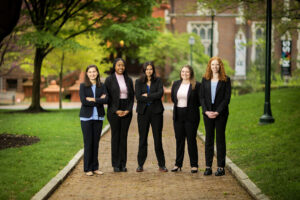
Machines beeping and whirring in a rhythmic chorus, the droning hum of medical equipment, and the bustles of busy health care providers are the familiar sounds of an extended stay at a hospital. This cacophony can create a sense of urgency for medical professionals as they move about with focused determination, closely monitoring their patients, but for infants in neonatal intensive care units (NICU) this constant noise can be overwhelming and developmentally detrimental.
Enter Tifara Boyce, from New York City; Gabriela Cano, from Lawrenceville, New Jersey; Gabriella Daltoso, from Boise, Idaho; Sophie Ishiwari, from Chicago, and Caroline Magro, from Alexandria, Virginia, bioengineering graduates from the School of Engineering and Applied Science, who have created the Sonura Beanie. Their device filters out harmful noises for NICU infants while supporting cognitive and socioemotional development by allowing parents to send voice messages to their newborns.
The Sonura team members are recipients of the 2023 President’s Innovation Prize, which includes an award of $100,000 and an additional $50,000 living stipend per team member. The recent graduates will spend the year developing their product.
“The Penn engineers behind Sonura are determined to make a difference in the world,” says President Liz Magill. “They identified a substantial medical challenge that affects many parents and their newborn children. With the guidance of their mentors, they are taking key steps to address it and in doing so are improving the developmental prospects for children in the NICU. I am proud the University is able to support their important work.”
The Sonura Beanie’s creation began in the Stephenson Foundation Educational Laboratory and Bio-MakerSpace as a part of the Bioengineering Senior Design class project.

She was particularly struck by the noisiness of the environment and considered the neurodevelopmental outcomes that may arise following long-term exposure to the harsh sounds at a critical developmental stage for infants. This concern prompted Magro to consult her team about potential solutions.
“I was really eager to tackle this problem because it bears some personal significance to me,” says Cano, who works on the device’s mobile application. “My sister was a NICU baby who was two months premature, so, when Caroline and I started talking about the issues a disruptive environment could cause, it seemed like the pieces of a puzzle started to come together.”
Read the full story in Penn Today.



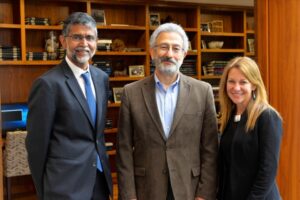
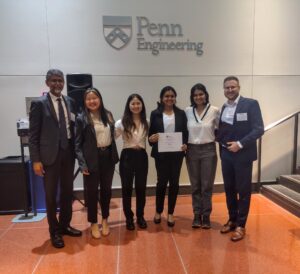
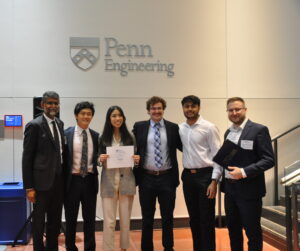 This award recognizes the group whose all-around presentation captures the best of the senior design program’s different facets: ideation, scope of project, team problem-solving, execution and presentation.
This award recognizes the group whose all-around presentation captures the best of the senior design program’s different facets: ideation, scope of project, team problem-solving, execution and presentation.



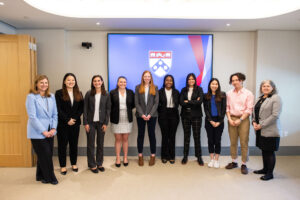


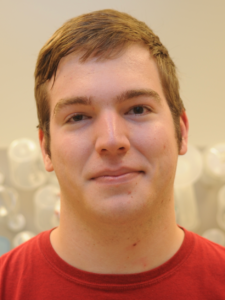

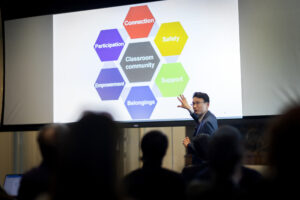
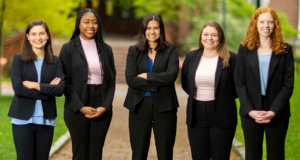
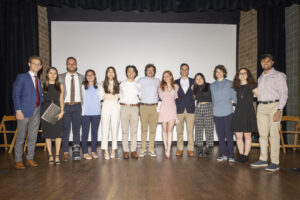 Congratulations to the Bioengineering student recipients of undergraduate awards from the
Congratulations to the Bioengineering student recipients of undergraduate awards from the